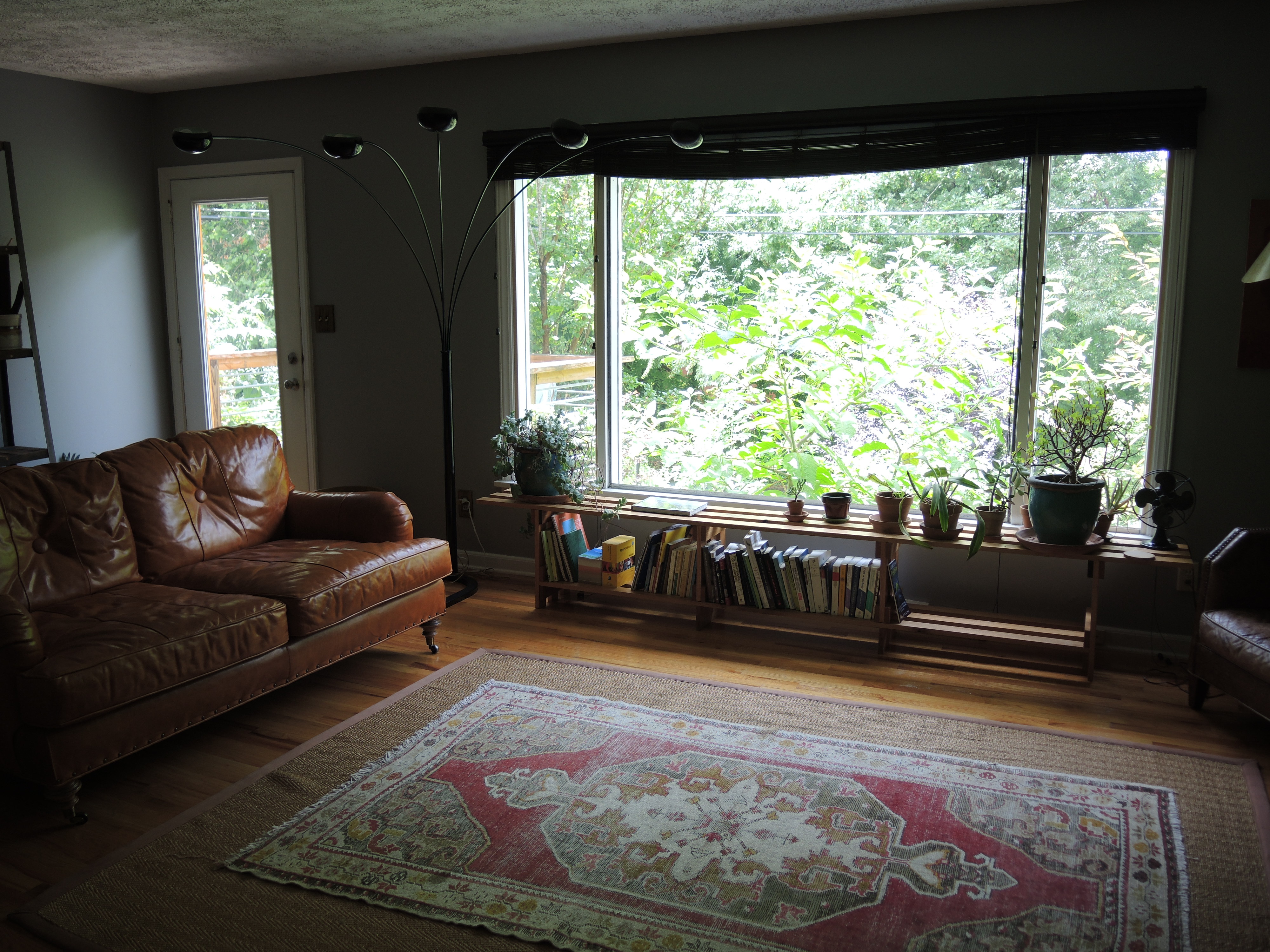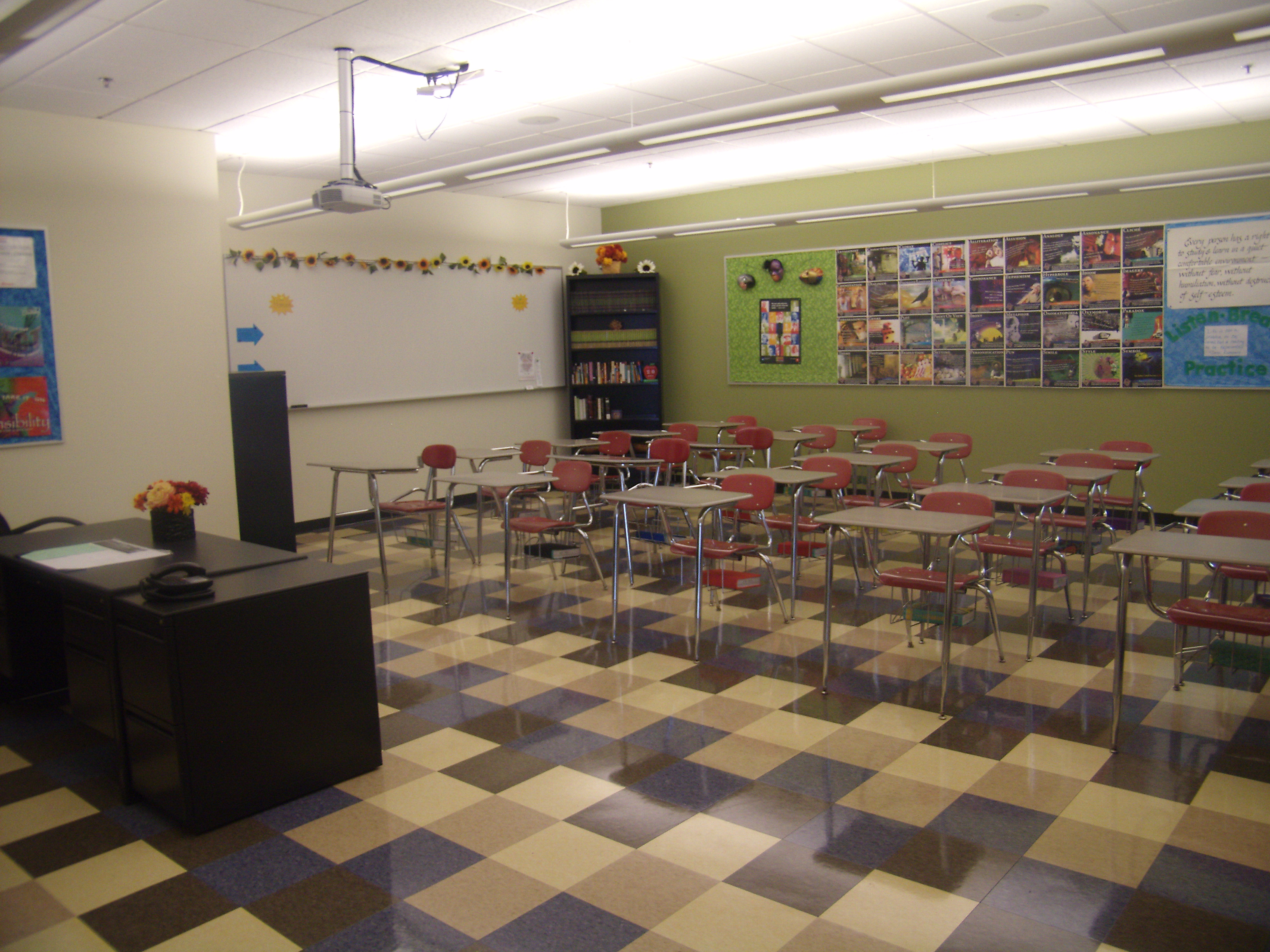One morning in May I came into work to discover that every file that I’d saved from the previous seven months had been deleted from my computer. Later that morning the principal made an announcement to teachers to back up their files because the computer system was experiencing a problem. My computer had been among the first to be wiped clean without warning.
I pieced together a lesson plan from memory and carried on with my day as if nothing had happened. My students at the time were English Language Learners– students whose first language was not English. Someone in first period asked me to interpret the string of morning messages that came cluttered through the loud speaker and missed most ears. Though I couldn’t translate into any of the dozen languages my students spoke, there was something about hearing the words from a kind, familiar face that made them understand.
“I have two choices,” I explained, “I can feel really bad about losing them and let it ruin my day or I can accept the fact that they’re gone and move on. No matter what I do they will not come back, but I’ll feel a lot better if I can just let go.”
I don’t know how much of my little speech they understood, but the language of emotions, of calm content, is universal. I’m sure we were all much happier in class that day when I didn’t spend the morning yelling and complaining and throwing a tirade about the lost files.
Those of you who know me well may be thinking that this isn’t a very good example. After all, by May I knew I wanted to leave teaching and wouldn’t be saving the files anyway. Even still, I needed the files to complete my teacher evaluation evidence folder, which was directly tied to my job performance rating, which could follow me wherever I went as a teacher or not. The files also reflected hours worth of lesson plans that I’d spent nights preparing and would have to recreate. Though not a devastating loss, it was important enough.
 A few nights ago I did lose something important to me: a year and a half worth of writing and pictures. Memoir of a Meanderer ceased to exist for two hours this past week. Did anyone catch the late night disappearance?
A few nights ago I did lose something important to me: a year and a half worth of writing and pictures. Memoir of a Meanderer ceased to exist for two hours this past week. Did anyone catch the late night disappearance?
I’ll be launching a new section of the website soon and was working with computer code to try to add something that does not yet appear. The code section of website creation is reminiscent of the old DOS screens on computers from the 80s and 90s: a whole lot of computer speak gibberish into which you type more gibberish that somehow translates into what you see on your screen now. It’s amazing and mystical and I have no idea how it works. Okay, after a year and half of creating and maintaining this website I’ve figured some things out, but mostly I’m just making things up as I go.
I’ve known that the effects of typing the wrong code could be potentially disastrous. One character in the wrong place and suddenly everything is gone. This is why I’m always careful to copy and paste the pages of unedited coding into word documents that I save to my computer so that when I do make a mistake (and it’s inevitable) I can just copy and paste my website back into creation.
But this week that didn’t work. Everything was just gone.
Memoir of a Meanderer became a blank white screen. Even my administrator’s log in page was a blank white screen. There was no way to recover my files if I couldn’t even access the control panel. A quick google search confirmed that my amateur editing had led to the infamous “white screen of death.” I felt a little like I was going to die at the thought of losing a year and a half worth of writing, the reader base I’d slowly acquired, the analogue of my recent life. All of it had been erased with one wrong press of a button.
 There are two couches in the house where I currently live. One long, tan leather couch positioned before a long wide window that I’ve dubbed my “writer couch,” the other is thick and fabric, and covered in comforting pillows that I refer to as the “nesting couch” perfect for curling up in on cool days, for deep discussions, for healing.
There are two couches in the house where I currently live. One long, tan leather couch positioned before a long wide window that I’ve dubbed my “writer couch,” the other is thick and fabric, and covered in comforting pillows that I refer to as the “nesting couch” perfect for curling up in on cool days, for deep discussions, for healing.
Still reeling from the white screen of death, I carried my laptop over to the nesting couch and took several deep breaths. I sat with my eyes closed and legs crossed for a few moments and settled into the feelings.
And then magic happened.
I let it all go. I made peace with the fact that I might have just lost all of my writing, that I might never recover it, that I might need to begin again. I posted something on facebook that I soon deleted about how if it could not be recovered I would simply create something more meaningful in its place.
During my silent meditation, a friend of mine found a link to a step-by-step guide to recovering a lost website. I approached it with calm ease. It would be okay if it didn’t work, I’d already moved on, but it would be nice too to get things back.
It took me two hours, but I was finally able to maneuver my way through technical computer jargon to recover all I’d lost. Memoir of a Meanderer went back to existing just as it had before.
 I do think my attitude had something to do with my website’s recovery. Had I been in a state of devastation, there is no way I would have been able to think or see clearly enough to move through the help guide my friend had emailed me. I would have missed steps, become overwhelmed, or given up completely.
I do think my attitude had something to do with my website’s recovery. Had I been in a state of devastation, there is no way I would have been able to think or see clearly enough to move through the help guide my friend had emailed me. I would have missed steps, become overwhelmed, or given up completely.
Often when something is lost there is nothing we can do to bring it back. We always have a choice though to let it go or continue holding on to its absence. If we stare too long into the emptiness we will see only what is missing and lose sight of all that is present. This is not to say that every loss will be as easy to let go of as my computer files, but each one is a process of accepting and surrendering to what is so that one can move on to what will be.
Read the poem that inspired the title of this blog post here.

